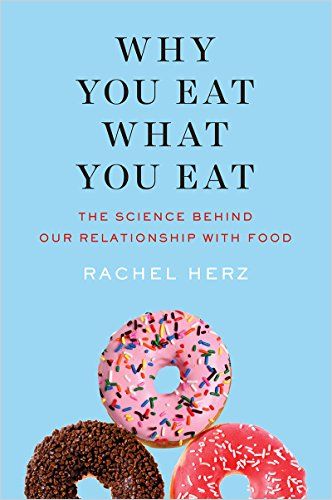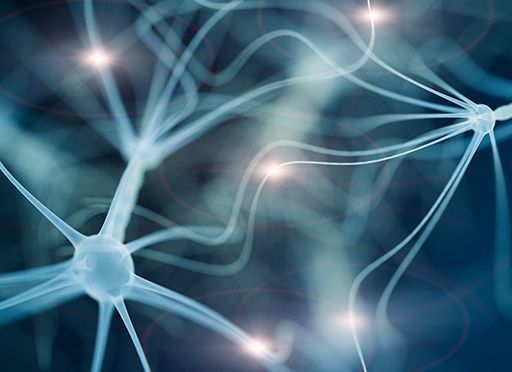Neuroscientist Rachel Herz presents fascinating facts about food and your body and your psychology’s relationship to it.

Yum Yum
TEDx speaker Dr. Rachel Herz, a neuroscientist specializing in perception and emotion at Brown University and Boston College, has published more than 85 original research papers, and consults on smell, taste, food and flavor. An expert on links between emotions and sensations, she draws on compelling research into the nexus of food and behavior.
Herz illuminates why you crave chocolate when you’re in love. She explains your complex love-hate relationship with food, which advertising, body image self-consciousness and social pressure fuel and sustain.
Herz applies her neuroscientific understanding to entice a general audience intrigued by the intersections of appetite, psychology, marketing and love. Accordingly, Library Journal recommended her book “for a variety of readers including those interested in food science, marketing, nutrition and psychology.” The Portland Press Herald found her approach, “Fascinating and provocative.…Herz lays out a smorgasbord of food-centric findings that are, by turns, familiar, instructive and surprising.”
Taste and Smell
Taste and smell, Herz relates, are chemical senses and the first to evolve. Most animals, including humans, have taste receptors all over their bodies. Herz tells that the taste receptors in your nose, gut, pancreas, liver and lungs do not connect to your brain; only the taste receptors on your tongue tell you what you’re eating. She identifies a map in the cerebral cortex that differentiates the “fab four” basic tastes: sweet, salty, sour and bitter.
Sweet taste triggers the release of endorphins – our body’s own opiates – and in so doing directly helps us feel better.Rachel Herz
Herz relates how, for millennia, humans sourced sugar and calories from carbohydrates such as root vegetables, corn and wheat. The brain consumes 25% of your caloric intake, and every bit of that as glucose. Sugar releases endorphins, which the author calls your natural opiates. People who like sweets, Herz discloses, exhibit more altruistic behaviors. But those who try to control their cravings with restrictive diets experience, Herz laments, face a failure rate of 95%.
Vision and Hearing
The better food looks, Herz acknowledges, the more you want to eat it. Red makes food seem sweeter; green makes it seem more sour. Herz tells how high-pitched sounds intensify sweet flavors while low-pitched sounds make bitter tastes more bitter. As you might expect, sweet foods induce happiness; bitter foods not so much. Herz relates an experiment in which people who listened to themselves eat potato chips at different volumes found the chips tasted better at higher volume.
Obesity
Herz contends that television and screens fuel obesity. She cites a direct correlation between how much TV you watch and how likely you are to become obese.
The easier food is to reach the more likely it is to end up in your mouth.Rachel Herz
Herz breaks down how people consume up to a third more in the company of one other person than they do alone. But when people want to impress someone, like a new boss, they consume less food in order to demonstrate self-control.
Comfort Foods
During the course of two days around the 2016 US election, Herz reports, take-out orders of pizza, cupcakes, fries, mac and cheese, and fried chicken spiked. Retail alcohol sales showed a 90% increase in metropolitan areas. The author regards these spikes as cravings for comfort food.
Most comfort foods are high in carbs, she reveals, which increase the serotonin levels that regulate sleep and mood and lead to a relaxed and pleasant state. High-carb foods increase inflammation, which links, the author warns, to depression.
Happily, Herz concedes that chocolate is healthy. Cocoa solids contain a source of flavanol antioxidants, which combat aging and cancer and improve brain function. The darker the chocolate, Herz points out, the more mood-boosting chemicals it contains.
Emotions
Herz reminds you that food has a profound impact on your psychology, neurology and physiology, and alters how you relate to your peers, society and yourself.
Food is memory, celebration, identity, conversation, emotion, glory, pleasure, pain, fear, disgust, comfort and guilt.Rachel Herz
Love even changes how things taste, Herz recounts. Even water tasted sweeter after thoughts of love.
Food and Fun
This is a fun read. Herz has the scientific credentials to back up her myriad factoids and a true nerd’s love of the minutiae of her field. She never weighs down her recitation of compelling lore with too much research. Herz is not trying to be Oliver Sacks. She’s aiming for a broader market with memorable stories and brief assertions any reader can repeat during office discussions or over dinner. A sweetness runs through the book; Herz’s passion is genuine and she wants her readers to savor this material as much as she does.
Herz, it seems is plowing a well-furrowed field. Other books addressing the psychology and sociology of appetite include Tasty by John McQuaid, The Dorito Effect by Mark Schatzker and Intuitive Eating by Evelyn Tribole.








